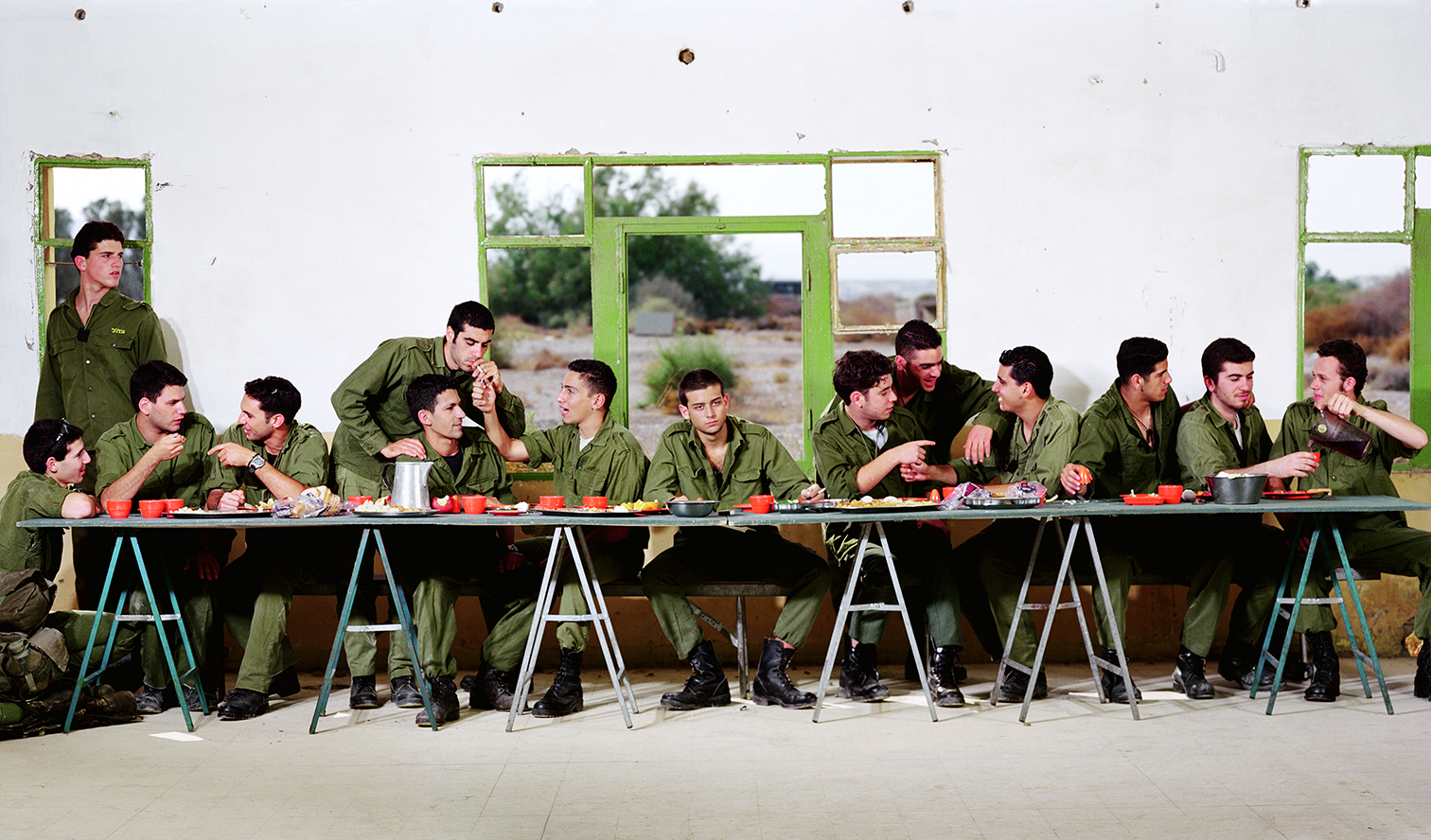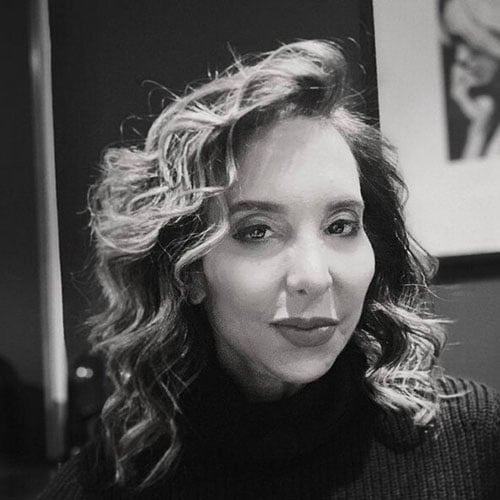
In December, Fotografiska New York opened in a gorgeously renovated gilded age mansion on lower Park Avenue. Based in Stockholm, the museum’s mission is to create “a haven of innovation, inclusivity, and self-expression.”
When I found out that Israeli photographer Adi Nes was one of only five artists selected for the inaugural exhibition, I was shocked. The vehement hatred of Israel by the international art world drew me back into politics in 2014. Was it possible that things had begun to change? That the museum’s exhibitions committee didn’t know it was supposed to boycott Israeli artists?
At Nes’ opening event in January, the new museum was bustling with activity. On the first floor, between a chic café and shop, one bumps into Nes’ floor-to-ceiling photo of an Israel Defense Forces (IDF) soldier with his shirt off, flexing his bicep. But no one was protesting or throwing paint. Indeed, although it was the usual New York City art crowd — international, affected cool — I didn’t hear one anti-Israel comment. Just respectful looking.
“Testaments,” through March 1, may have passed the artistically correct test because of the subject matter: identity. Nes was born in 1966 in Kiryat Gat, a small town north of the Negev, to parents who were immigrants from Iran. “Living in a country of multiple internal tensions and external conflicts, Nes developed a rare sensitivity to empathize and see life from many perspectives,” curator Daniel Sanchez-Torres states in the wall text. Nes investigates “identity issues of Israeliness and masculinity, and how they intersect with feelings of alienation, social justice and homoeroticism.”
Not typically a fan of overtly political or conceptual art, I think Nes, who is represented by the Jack Shainman Gallery in New York City and Praz-Delavallade in Paris and Los Angeles, rises above the contemporary need to over-intellectualize with his acute sensitivity to composition, light and strategic staging — “like creating a still image for a film,” Nes said in his talk that evening.
“Testaments” includes three of his photographic series: “Biblical Stories,” “Soldiers” and “The Village.” I think his strongest series is “Soldiers,” because Nes ends up humanizing them. “The soldiers become a metaphor for humanity,” Nes said.
Nes told the crowd that he felt proud to serve in the IDF, and although he’s had many opportunities to leave Israel, he never will: “Hebrew is the spine of my identity.”
“While the themes explored may be rooted in the personal experience of Nes as an outsider, the archetypical settings provide an access point for us to understand the work, and possibly be seen too,” Torres writes. One of his photos, called “Last Supper,” recently sold at Sotheby’s for nearly $400,000.

Still, at a time of cultural boycotts of Israel, why did Fotografiska’s committee choose Nes?
“Because of his work and talent,” exhibitions director Amanda Hajjar told the Journal. “Nes’ work is autobiographical and speaks to his personal feelings of being a marginalized person on the periphery. This is something that many can relate to, regardless of race, religious beliefs or sexual orientation.”
Has the museum ever felt the pressure to boycott Israel? “Fotografiska New York is committed to showing the photography and art of diverse artists of varied backgrounds,” Hajjar said.
A little digging after the event led me to at least part of the answer. Yoram Roth, Fotografiska’s chairman of the board, sits on the exhibitions committee. Although Roth was born in Berlin, his grandfather fled the Nazis, immigrating to Israel before returning to Germany after the war.
Roth, a photographer himself, has changed the art world overnight. Fotografiska is indeed a testament to “inspiring a more conscious world through photography,” according to Fotografiska’s press release.
Will there be a Fotografiska Tel Aviv soon? “We are very interested in Tel Aviv and are looking for the appropriate partners,” Roth said.
Yalla.
Karen Lehrman Bloch is editor-in-chief of yofi magazine.























 More news and opinions than at a Shabbat dinner, right in your inbox.
More news and opinions than at a Shabbat dinner, right in your inbox.